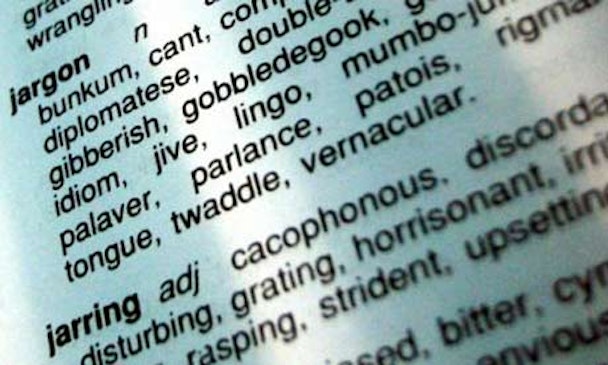Why the ad industry must ditch the jargon
Adam Buxton, the comedian, writer, director and actor, kicked-off Advertising Week’s ‘The Great Advertising Jargon Detox’ session with the observation that jargon is often used to "make something simple seem clever, mysterious, and complex, by people who want to seem cleverer, mysterious and complex."

Instead, he argued, it’s just a "dick language" that makes people think negatively about the advertising business and I wholeheartedly agree.
It’s time to ditch the jargon from our business and move, at the same time, towards more fluid and open ways of working together rather than using obscure language to put up barriers around our own areas of expertise. Thankfully my fellow panellists at Advertising Week – MediaCom’s Sue Unerman, DCM’s Karen Stacey and Dennis Publishing’s David Weeks –agreed.
Calling out the worst examples of jargon, Unerman went for engagement ("it’s not specific enough," she argued); Stacey for the phrase 'make go viral' and Weeks for a recent comment he’d heard that 'data is the new soil'.
For me, the worst piece of industry jargon around is 'value proposition', as it’s just so ill-defined.
Video of real people reacting to ridiculous ad industry jargon such as native and engagement (does it involve a ring on your finger?) shown at the session yesterday highlighted just how far we’ve become trapped in our own self-regarding world and are losing touch with the people that advertisers need to connect with.
The rise of adblocking provides a stark reminder of this situation. The excuses and obfuscation that the media industry deploys to explain away the pitiful mess of digital advertising clutter demonstrates why we should use clear, plain language to call out the metrics and obscure practices that are damaging the industry.
Adblocking is a sign of a wider existential threat to the industry. It provides a warning that brands are less interesting to real people than they think they are or would like to be. Too much advertising is cultural pollution and it’s beholden on agencies and brands to contribute positively to culture in a way that’s welcomed. This can only be achieved if we learn to speak in a more democratic and less solipsistic way.
The so-called traditional media channels, newspapers and TV for instance, are by no means innocent in all this. They are more than capable of using jargon that closes their channels off to interaction with other parts of the media and creative industries.
While there is evidence in recent times that media owners in these spaces are rethinking their models more could be done. I want to have straight, jargon-free conversations with media owners to encourage them to try different things because there are still too many who have structures where the print business is in one corner of the building and the apps are developed in another. They need to rip up both these physical divides and the language barriers that create even greater obstacles.
This new kind of thinking, starting with losing the jargon, is essential, if we’re to create an industry that’s clear-thinking and straight-talking.
Omaid Hiwaizi is president global marketing at Blippar, he took part in yesterday's 'Great Advertising Jargon Debate' on the Getty Images stage at Advertising Week Europe. Bloomberg Media was the host of the session.
